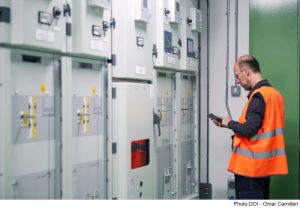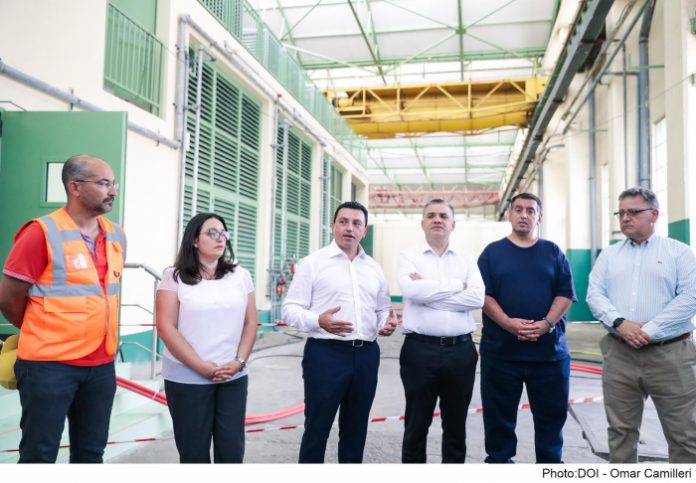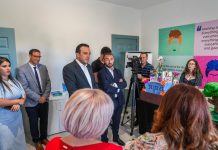Infrastructure Malta (IM) is nearing the completion of the final phase at the southern part of the Shore Supply Project, as the testing of shoreside electrical equipment at Boiler Wharf in Senglea, is 95% completed. This was announced by Minister for Transport, Infrastructure and Capital Projects Aaron Farrugia, and Parliamentary Secretary for European Funds Chris Bonett during an onsite visit.
IM is now testing all electro-mechanical systems, including cables, transformers, frequency converters, distribution boards and switchgear. Testing of the premises’ Supervisory Control and Data Acquisition systems, backup systems and safety and firefighting systems are also underway. In the past few days, testing was finalised on the connection vehicles and cranes that will supply shore-to-ship electricity to cruise liners in the Grand Harbour.
The frequency converter station will provide a shore power supply of up to 16 megavolt-amperes to one cruise ship. The facility is energised through a 33-Kilovolt cable network connected to the electrical North Distribution Centre in Marsa. The frequency converter station resides in an old industrial shed at Boiler Wharf in Senglea. IM is also nearing completion of the restoration and conservation of this shed as part of Malta’s industrial heritage.
On the other hand, ongoing works at the North side of the Port are on a much larger scale. The north side will be able to provide shore power to up to 4 ships simultaneously and distributed on four quays. Two 33-kilovolt cables will energise the project’s other frequency converter station equipment at Deep Water Quay in Marsa. Works at Marsa are 90% completed, with the testing and commissioning of equipment scheduled to commence shortly.
The North Harbour and Boiler Wharf Shore Supply Project is an environmental investment to cut 90% of air pollution by cruise liners at the Grand Harbour. Through this project, the port will be equipped with all necessary electrical infrastructure for cruise liners to switch off their gasoil or heavy fuel oil engines and plug in to shore supply electricity. These facilities will energise the ship’s onboard system whilst berthed at the port, improving air quality for 17,000 families living in the Grand Harbour area.

Minister Aaron Farrugia spoke about the significance of this project, particularly to families living close to the Grand Harbour area. “This multi-million investment will provide much-needed relief to families in the area, who have long endured the detrimental effects of pollution emitted from cruise ships,” Minister Farrugia said, adding that the projects drastically reduce the emissions caused by cruise ships while visiting Malta, as by switching off their auxiliary engines, cruise liners emit 93% less nitrogen oxides, 92.6% less particular matter and 99.6% less sulphur dioxide.
Parliamentary Secretary Chris Bonett emphasised on how important it is for Malta, together with the European Union, to work towards achieving its goals for sustainability and carbon neutrality. With the aid of the Just Transition fund, an investment of €33 million is being made on projects like the Shore-to-Ship, that will be focusing on using cleaner energy in local harbours. “In order to access the Just Transition Fund support, Malta had to submit a Territorial Just Transition Plan. Our Plan takes into account the fact that Malta’ s transition process towards a climate-neutral economy has been ongoing for decades and is particularly reflected in the development registered in the last ten years in the energy sector,” stated Parliamentary Secretary Bonett.
There will be 13 shore connection points at the north side at Pinto Quays and DeepWater Quay and another 4 connection points at Boiler Wharf. These will provide flexibility to enable the connection to specific ship orientations. A 2015 European report indicates that one cruise ship berthed at port for eight hours produces an estimated 1.2 tonnes of nitrogen dioxide, the equivalent of 300,000 cars driving from Ċirkewwa (Mellieħa) to Marsaxlokk. It releases 30 kilograms of particulate matter, the same as 180,000 cars travelling the same distance across Malta.










